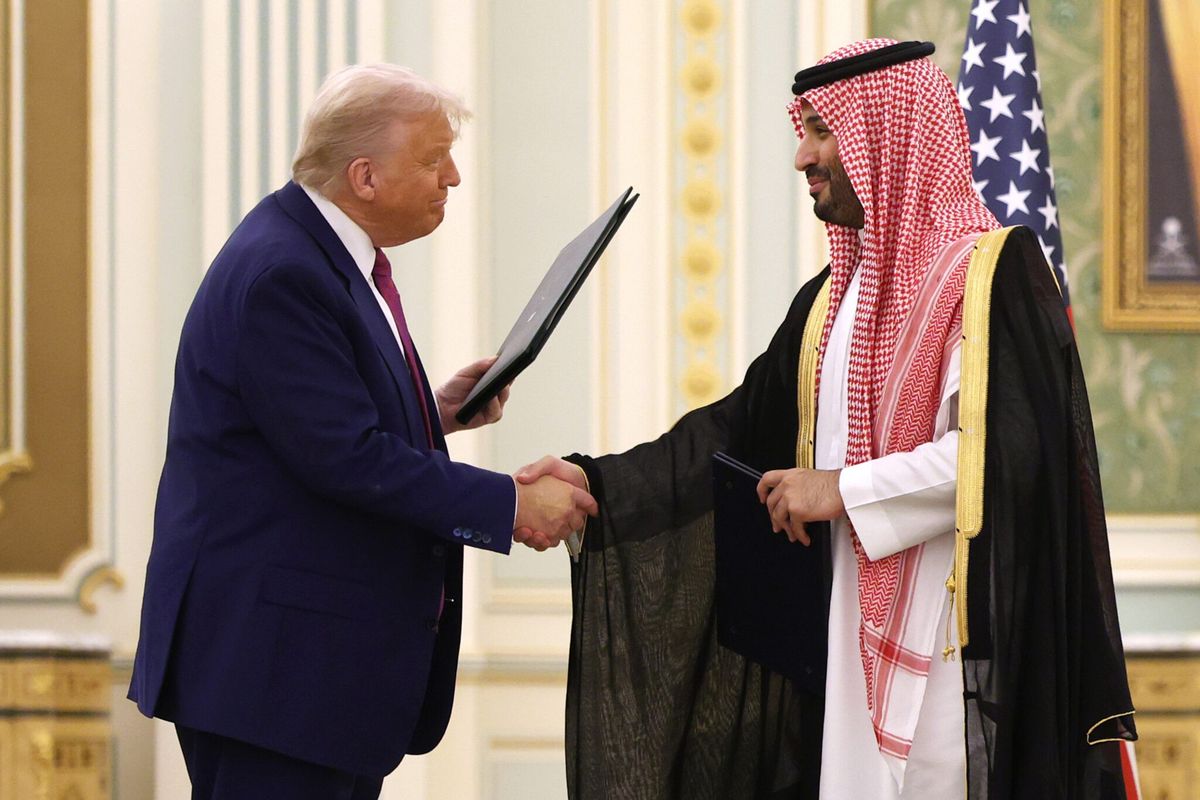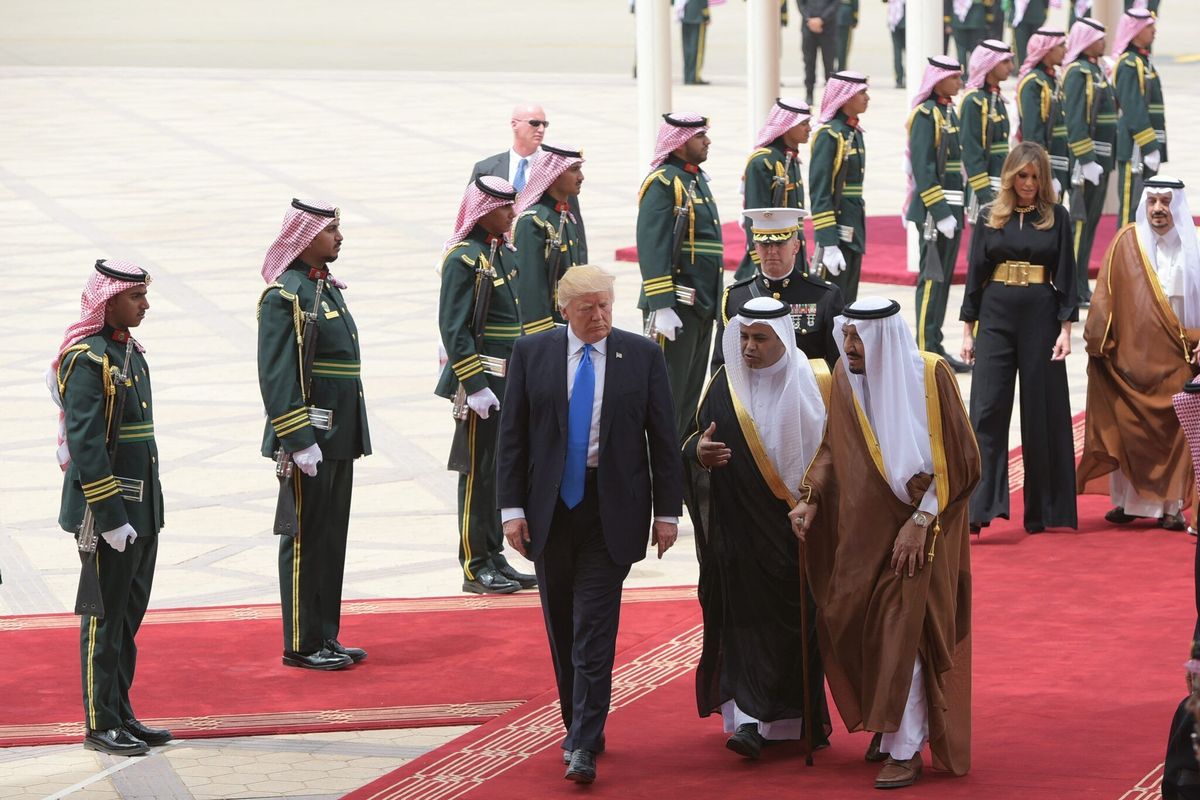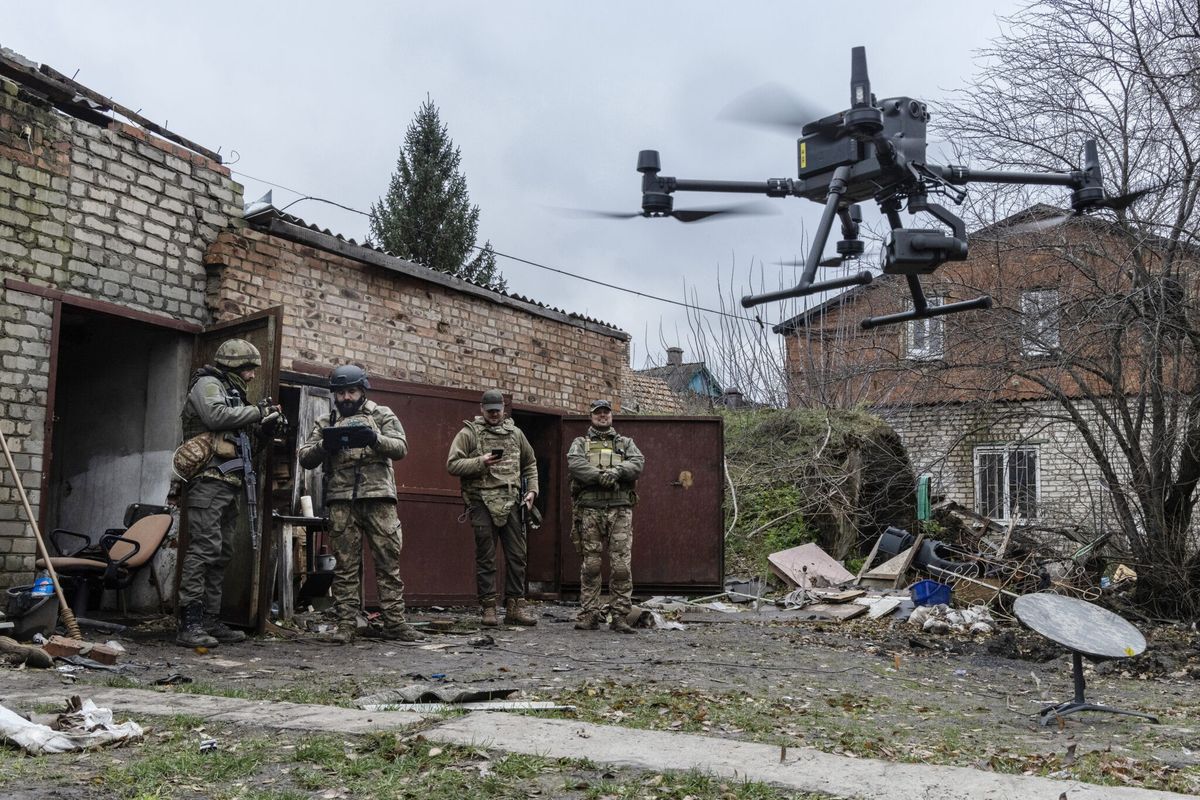OPINION - National Security Adviser Mike Waltz appears to have lost his post at least in part because of questions of loyalty. Same for National Security Agency (NSA) Director Gen. Timothy Haugh. Their removals from two crucial positions followed the visit to White House of Lara Loomer, a right-wing influencer with no government position, who told President Donald Trump that they should be fired, along with five or six others at the National Security Agency. Why? Not because of any issues involving policy or competence. But because they were deemed to be insufficiently loyal to the president.
The others were let go almost immediately. In Mr. Waltz’s case it took a while longer.
When I went to work in the White House, no one asked me who I voted for, or what policies I supported. It wasn't ever part of the conversation. The questions were about experience and competence. As far as loyalty was concerned, we were loyal to the country. And to the constitution. Loyalty to the president? That existed only in the sense that we were following the policy directives put forth by the Commander-in-Chief. But other than that, it wasn’t ever discussed, and it was never part of the way things worked.
I was one of many officials who came to the White House with a background in the military. In the military, my experience was that you could be friends with somebody for a long time and never know who they voted for.
Even when it came to the president’s policies, one was never expected to simply nod and acquiesce to everything that the president put forward. We were there as advisers, and that sometimes meant a degree of dissent. We came with our experience and our perspectives, and sometimes that meant we told the president, or the White House Chief of Staff, or whoever was running the discussion: Well, that's interesting, but I don't think that's quite right. Let's talk about that. This of course is how informed policy is made. Or should be made.
For two years, when I held the job of Director for National Security Strategy at the National Security Council, I wrote President George H.W. Bush's National Security Strategy. I did not take dictation from the president to produce that document. I didn’t even spend a whole lot of time talking to President Bush in preparation for it. I would speak instead with a lot of other people on the National Security Council. I would prepare drafts and share those with the others, who in turn offered comments. The official in charge of the process at the time was the National Security Advisor Brent Scowcroft. Together we crafted a strategy document and then, when we felt aligned on the main points, I wrote the final draft and gave it to the president. And in my experience, he reviewed it, and said something along the lines of, “Looks pretty good. I'll sign it.”
The intersection of technology, defense, space and intelligence is critical to future U.S. national security. Join The Cipher Brief on June 5th and 6th in Austin, Texas for the NatSecEDGE conference. Find out how to get an invitation to this invite-only event at natsecedge.com
The impact – at home and abroad
Why does all this matter?
It matters for the way we make U.S. policy. And it matters for the way we are seen in the world.
Any policy decision benefits from a multiplicity of perspectives and experiences. Just as a diversity of views and backgrounds will improve a decision-making process in any organization.
Within the national security establishment, the military will often have a certain point of view that differs from the State Department perspective. Which in turn may be utterly different from the way in which the CIA sees that same issue. In my time in different high-level national security positions, we had many instances in which, after many meetings, we came to the president and said, Well, there are three options here, and we think this is the best one. The Department of Defense disagrees, but we feel differently. And so forth. And then it was the president’s job to hear the various assessments and make his call. That’s why the job is known as “Commander-in-Chief.”
To take some examples from recent history:
When the Iraq war began going downhill, it took strong voices – and it took some time – to convince President George W. Bush that things weren’t going well. And that we would have to do something different. There was a particular view in the intelligence community that Iraq was descending into civil war. At first the White House didn’t buy that – didn’t want to hear about it. There were deep differences between the CIA and the Pentagon. But those differences were aired and the message was delivered to the President: We are dealing with a civil war in Iraq.
More recently, when the U.S. prepared to withdraw its forces from Afghanistan, the Pentagon said one thing, and the CIA said something completely different. Others in the chain of the decision process may have held other views. The point is, hearing all those views is critically important. And today I am afraid that people will not share their views – views based on their own expertise and knowledge – because they know those views won’t always be in the line with the president’s. And because they fear the consequences.
I am also really worried about what our allies and friends around the world think about all this. When I was at the CIA, my wife Jeanine and I went to roughly 60 countries in less than three years, when I served as Director. We went to those countries because people wanted to talk with us. They were interested in our views, and they respected the United States of America. And now I think the people and leaders in many of those countries are really worried about what's going on in the United States. I've heard some people saying, No, it'll be OK. It's just the domestic politics in the U.S., it'll be OK. But I think most people know that it's not OK. People I am in contact with around the world are worried about this.
In the wake of Mike Waltz’s ouster as National Security Adviser, Marco Rubio now wears the twin hats of Secretary of State and National Security Adviser (actually he wears two others – head of the gutted U.S. Agency for International Development and the National Archives). Much has been said about the so-called “Kissinger precedent,” referring to Dr. Henry Kissinger, the only other person to hold those two jobs simultaneously.
I believe it was a bad idea then, and it’s a bad idea now. The White House National Security Council is utterly different from the State Department. They serve different purposes. And in our history, it has often been important that they present opposing views. You lose that when you have the same individual running both departments. Not to mention the colossal job of management that each position entails.
Lastly, these developments have left me worried that good, highly experienced and competent people won't want to be in the White House. They won’t want to serve their country in that way. If all you are doing is showing your loyalty, if your own views are often kept to yourself – by necessity, or because of fear – then you might think twice about taking the job, despite your patriotism and your wish to serve.
The Cipher Brief is committed to publishing a range of perspectives on national security issues submitted by deeply experienced national security professionals. Opinions expressed are those of the author and do not represent the views or opinions of The Cipher Brief.
Have a perspective to share based on your experience in the national security field? Send it to Editor@thecipherbrief.com for publication consideration.
Read more expert-driven national security insights, perspective and analysis in The Cipher Brief














